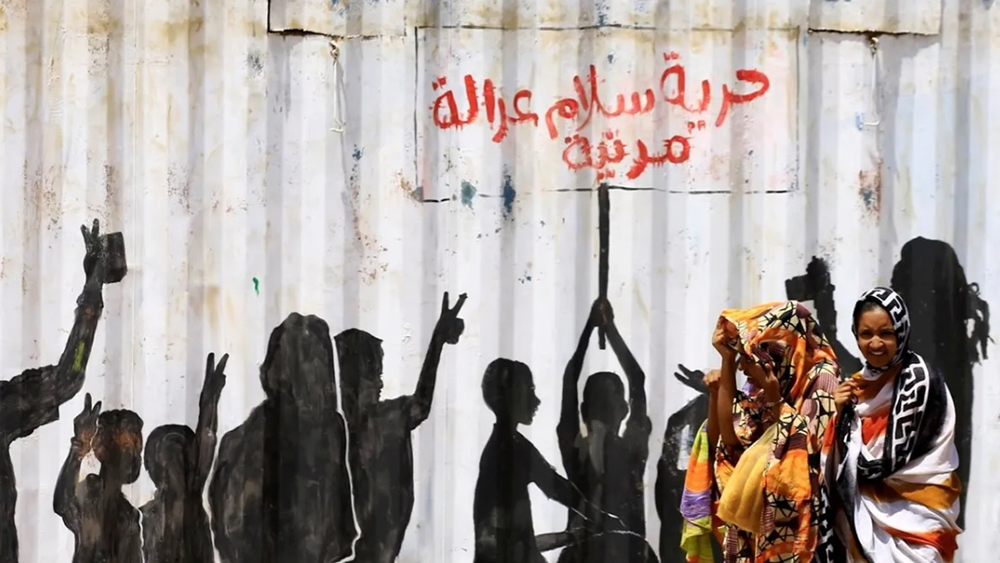
Sudan: Majority Awaiting Broad Political Unity to Stop the War
Mashaer Idris
After the war between the army and the Rapid Support Forces entered its seventh month, Sudanese political and civil forces saw the need to unite in the broadest possible civil front to stop the war. Despite the differences between political parties, armed movements, trade unions, professional bodies, civil society organizations, and resistance committees, their common goal is to stop the war and restore democracy.
The deliberations of the preparatory meeting for the unity of the democratic civil forces began in the Ethiopian capital last Monday, amid pledges from the preparatory committee to make necessary concessions for the unity of the civil forces.
The meeting primarily aims to stop the ongoing war since mid-April between the Sudanese army and the Rapid Support Forces and to arrange for the announcement of the formation of the broadest possible civil front to restore the democratic path.
Mohamed Al-Hadi Mahmoud, the Secretary-General of the Unified National Party, said that the unity of civil forces, with all its political components, resistance committees, civil society organizations, and civilians, is not only necessary but has become a national duty that every patriotic Sudanese who loves this dear country should not neglect.
Mohamed Al-Hadi described the country as facing the biggest catastrophe in its ancient and modern history. Therefore, unity was an utmost necessity to confront what he referred to as forces of evil that ruled and dominated for thirty lean years.
He added that when the December revolution overthrew them, it was thanks to the unity of the national revolutionary forces to achieve the slogans of the glorious December revolution: freedom, peace, justice, and human dignity.
He continued, saying that when disagreements arose among the revolutionary forces, that was an opportunity exploited by the current evil we are living with all its tragic and catastrophic misery from a fierce war that fell on the heads of our patient and steadfast people and the army, which was not prepared for this war at all.
He went on to say that the war came as a shock to everyone except those who ignited it, and it turned out against their expectations. Now, in our seventh month of the catastrophic war, we appreciate the consultative meeting that took place in Addis Ababa.
He pointed out that the Addis Ababa meeting is the beginning of forming the necessary national front. He hopes that the national forces calling for stopping the war and the democratic transition will quickly participate in this sacred national duty.
Meanwhile, Babiker Faisal, a leader of the Forces of Freedom and Change, confirmed the success of the meetings of the civil front in stopping the war and restoring the democratic path by reaching a consensus on an organizational structure and preparing for a general conference of the civil front.
Babiker Faisal said that the meetings of the civil front focused on stopping the war, providing humanitarian aid, and the necessity of starting the political process after stopping the war.
The preparatory committee for the meeting of the unity of the democratic civil front announced an agreement to form a leadership body chaired by former Prime Minister Abdullah Hamdok to follow up on the preparations for holding a founding conference within eight weeks.
The agreement defined the temporary organizational structure of the preparatory leadership body for the democratic civil front, known in the media as Progress, to include a leadership body headed by Hamdok to carry out supervisory and oversight duties and follow up on the preparations for the founding conference. The leadership body included 60 members.
Abdullah Hamdok confirmed in a press statement on Thursday his support for the recommendations of the preparatory meeting and its concluding statement as a first step and his readiness to chair the preparatory leadership body leading to the founding conference.
He added that the preparatory meeting was a first step and the beginning of a process that we hope will coordinate and unite the democratic civil anti-war stance. He called on the democratic civil forces seeking to stop the war to unite their efforts to reach a broad civil unity to stop the war, address its humanitarian effects, and achieve comprehensive peace.
The civil front agreed in the concluding statement to grant 70% of the leadership body to non-partisan forces from resistance committees, unions, professional bodies, civil society organizations, and womens groups, while political organizations and alliances and armed struggle movements were given only 30%.
It emphasized the need for security and military reform, leading to one national professional army, the withdrawal of military forces from political and economic activity, the importance of transitional justice, and balanced foreign relations as conditions for the transitional transition.
The preparatory meeting called for addressing the humanitarian catastrophe resulting from the war, which cannot be delayed, especially since Sudan has no less than 20 million people in need of humanitarian aid.

